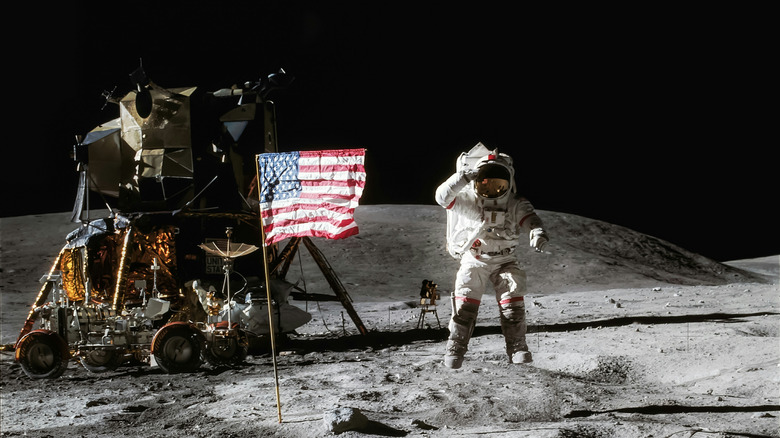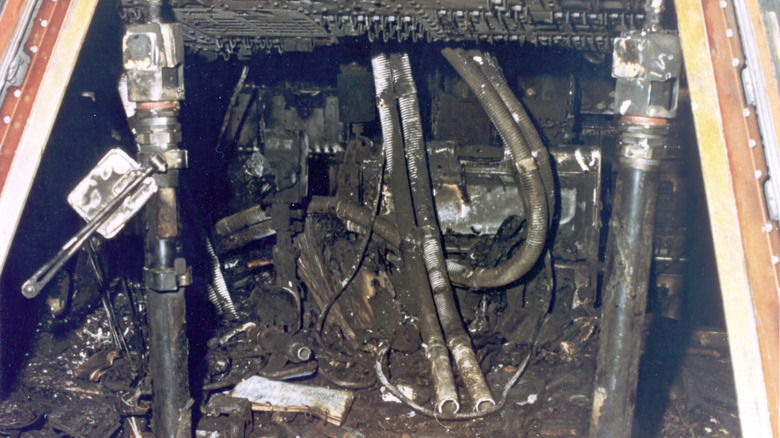Why Landing The First Man On The Moon Cost Many Lives
For America, the space race was, in many ways, a desperate game of catch-up, as by 1961 the Soviets had launched the first artificial satellite and human astronaut into space. The following year President Kennedy made his vow that American astronauts would land on and return from the moon by the end of the decade. While he did not live to see this come to fruition, the Apollo 11 mission indeed fulfilled his vow to the American people and the world.
Despite genuine fears from NASA and president Nixon that the mission would end in catastrophe, all three crew members returned safely and were hailed as heroes. At least in America, these men overshadowed not only the previous Soviet accomplishments but the subsequent American astronauts who made the lunar journey as well. Unfortunately, for such a stunning and radical advance in technology to be achieved, many lost their lives in the pursuit of this new frontier and their sacrifices have seldom received nearly as much attention (via Astronomy.com).
The race to the moon was plagued with many tragedies
Per History.com, some of the first NASA (and NACA, the agency's immediate predecessor) personnel to lose their lives were research pilots that had been testing jet- and rocket-powered aircraft. The purpose of the tests was to determine how the human body and vehicle would be affected at such speeds, with pilots such as Chuck Yeager setting unprecedented records. However the experimental nature of the latter led to a relatively high attrition rate among pilots (via phys.org).
Those who did not perish in these early years progressed to become the first Apollo astronauts, but even then tragedy often struck. Four were killed in training accidents between 1964 and 1967, while the more prolific Apollo 1 disaster threatened the schedule of the whole project (via Smithsonian). After a fire broke out in the oxygen-rich capsule (the burned interior pictured above) and all three crew-members perished, for a time there was a very real possibility that the human and monetary cost would outweigh NASA's goal altogether and even lead to cancellation. It didn't, but only after an extensive redesign effort for the capsules so as to avoid a repeat of the tragedy (via Space.com).

